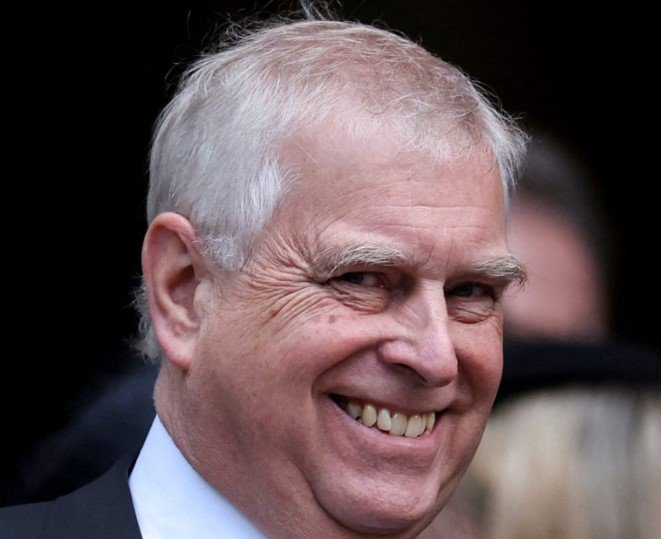Prince Andrew, the Duke of York, took 30 taxpayer-funded trips to the Middle East over seven years while serving as the UK’s trade envoy. This revelation comes amid growing scrutiny of his past actions and calls for him to leave his lavish Royal Lodge home.
Recent reports highlight how Andrew spent two decades traveling the world on official business, with the Gulf region as a top spot. These trips, paid for by British taxpayers, have sparked fresh outrage as details emerge about their frequency and costs.
Andrew’s Role as UK Trade Envoy
Prince Andrew held the position of UK Special Representative for International Trade and Investment from 2001 to 2011. In this role, he aimed to boost British business ties abroad.
During those years, he visited countries like the United Arab Emirates, Saudi Arabia, and Bahrain multiple times. Sources indicate he met with key leaders to discuss energy, defense, and trade deals.

His travels often involved private jets and luxury stays, raising questions about value for money. Critics argue these outings focused more on personal networking than clear economic gains for the UK.
One notable aspect was his repeated trips to the Gulf states. Reports show he built close ties with royal families there, which some say helped secure deals but also led to controversy.
Details of the Taxpayer-Funded Journeys
The 30 trips to the Middle East occurred between 2001 and 2008, according to recent analyses. These included visits to energy summits and business forums.
Taxpayers footed bills for flights, security, and accommodations. Estimates suggest costs ran into millions of pounds over his tenure.
Here is a breakdown of key trip highlights based on public records:
| Year Range | Number of Trips | Key Destinations | Estimated Cost per Trip (Approx.) |
|---|---|---|---|
| 2001-2003 | 8 | UAE, Saudi Arabia | £50,000 |
| 2004-2006 | 12 | Bahrain, Qatar | £60,000 |
| 2007-2008 | 10 | Oman, Kuwait | £55,000 |
These figures come from official disclosures and expert estimates. The total spending on his global travels as envoy exceeded £4 million, with Middle East visits making up a large share.
Andrew stepped down from the role in 2011 after backlash over his links to controversial figures. Yet, questions about these trips persist, especially as new biographies and reports dig into his conduct.
Links to Scandals and Epstein Connection
Andrew’s troubles deepened due to his friendship with Jeffrey Epstein, the convicted sex offender. This association led to his removal from royal duties in 2019.
In 2022, he settled a lawsuit with Virginia Giuffre, who accused him of sexual assault. He paid an estimated £12 million without admitting guilt.
Recent books and interviews claim Andrew used official trips for personal indulgences. Allegations include meetings with escorts during visits to Thailand, though not directly tied to Middle East journeys.
His Epstein ties have overshadowed his trade work. Public trust eroded further when court documents unsealed in 2024 named him multiple times in Epstein-related files.
These scandals have fueled demands for transparency. Some lawmakers call for audits of royal spending, pointing to Andrew as a symbol of excess.
Experts note that while Andrew denied all wrongdoing, the settlements and stripped titles have damaged the monarchy’s image. His case highlights broader issues of accountability in royal finances.
Recent Developments and Housing Row
In October 2025, Andrew announced he would stop using his royal titles amid ongoing pressure. This follows reports of his potential eviction from Royal Lodge, a 30-room mansion in Windsor.
King Charles III reportedly wants him out to cut costs. Suggestions include relocating to a smaller property or even Scotland.
Andrew has ties to Abu Dhabi, where he reportedly has access to a luxury home. This has raised eyebrows, as it contrasts with his UK taxpayer-supported lifestyle.
Public funds still cover some of his security, estimated at £3 million yearly until recently scaled back. Debates continue on whether he should repay any past expenses.
Public Reaction and Calls for Change
Outrage has grown on social media and in opinion pieces. Many Britons question why taxpayers funded lavish trips for a now-disgraced royal.
Campaign groups like Republic push for abolishing the monarchy or at least reforming its funding. They argue Andrew’s case shows systemic flaws.
Polls from 2025 show declining support for the royals, with 45 percent favoring reduced public spending on them. This ties into broader economic pressures, like rising living costs.
Supporters defend Andrew, saying his trade role brought in billions in deals. However, evidence of direct benefits remains debated.
Key public concerns include:
- High costs of royal security and travel.
- Lack of oversight on official trips.
- Impact on the monarchy’s reputation.
These points dominate discussions in forums and news outlets.
What This Means for the Royal Family
The revelations about Andrew’s trips add to a tough year for the royals. With King Charles focusing on slimming down the monarchy, Andrew’s situation tests family unity.
Analysts predict more scrutiny on royal finances in 2026 budget talks. This could lead to tighter rules on taxpayer money for non-working royals.
For now, Andrew remains in the spotlight, with biographies and documentaries keeping the story alive. His story serves as a cautionary tale about privilege and accountability.
If this article sparked your interest, share it with friends or leave a comment below on your thoughts about royal funding. Your views help shape the conversation.
